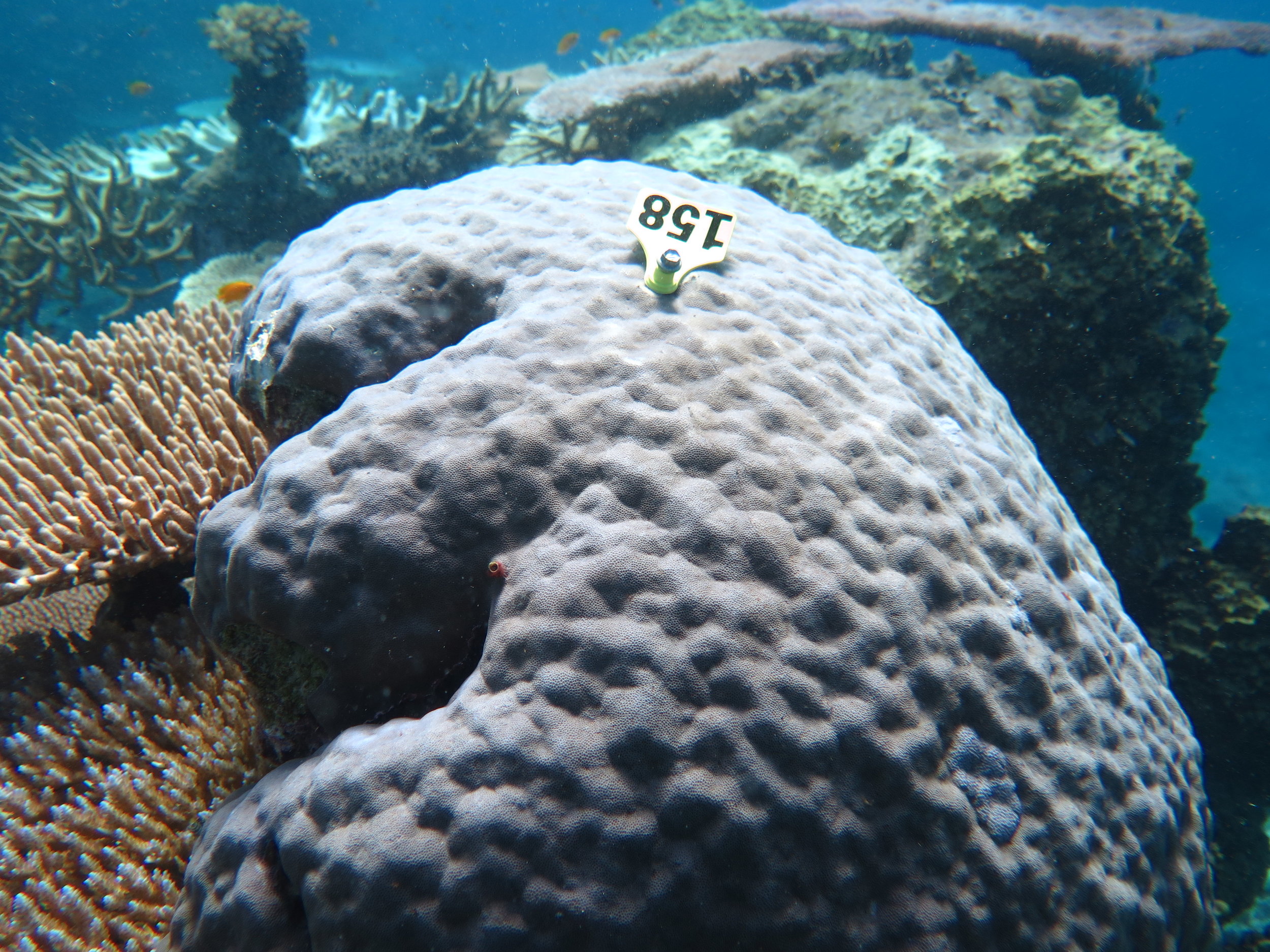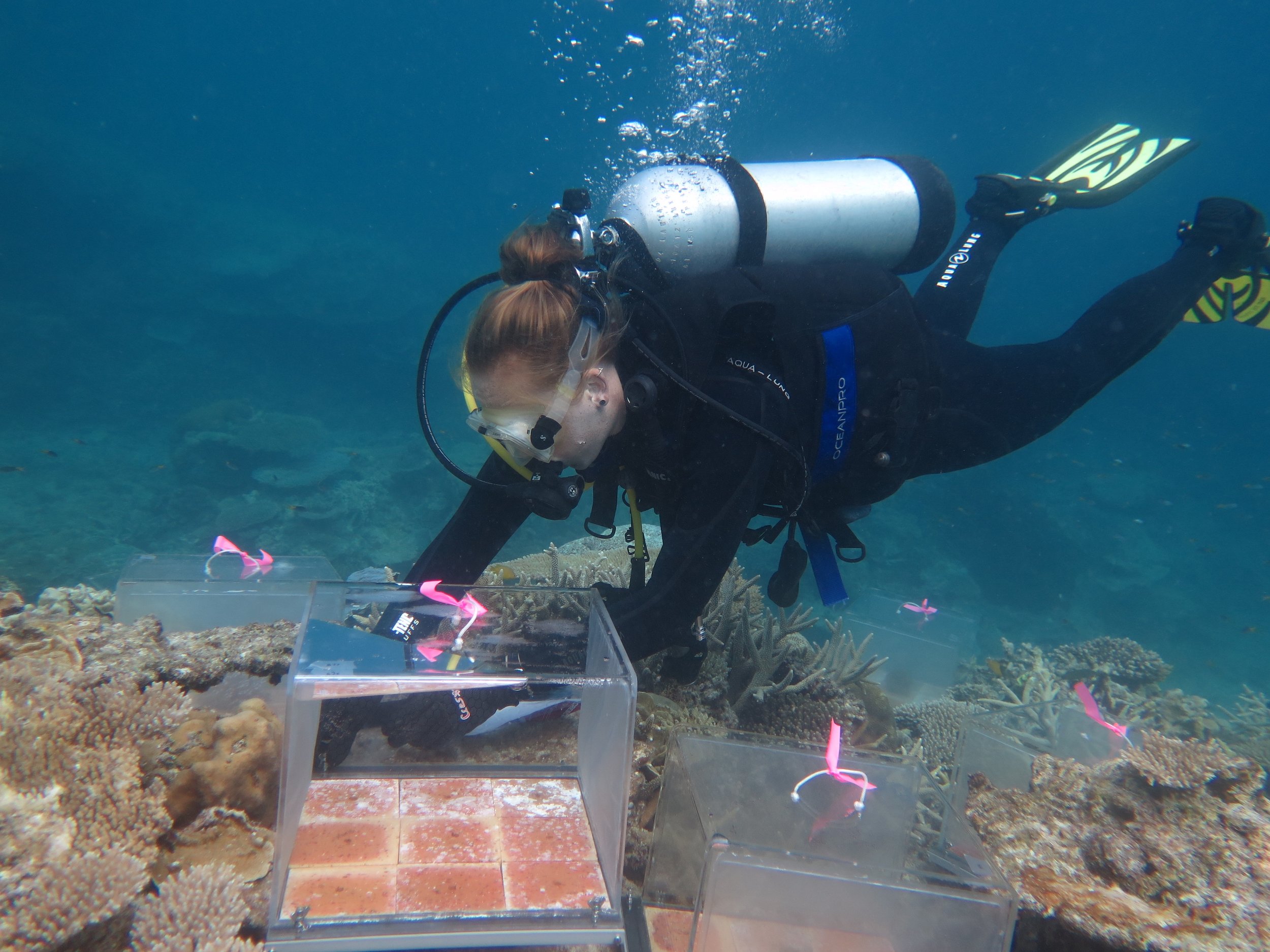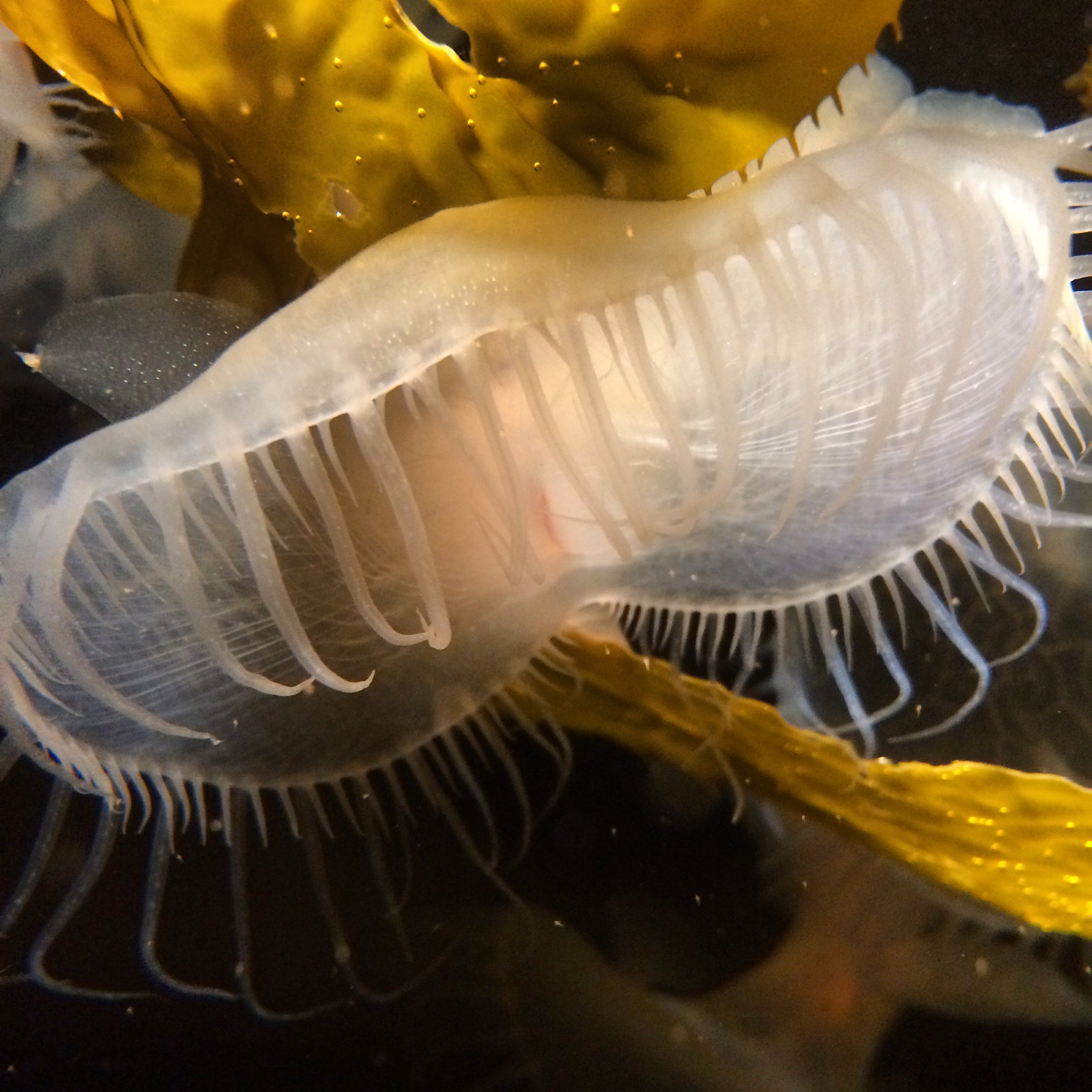

Research
Life wouldn’t be as we know it without microbes. They thrive in all habitats on our planet, on all surfaces and in all multicellular life. Specifically, host-associated microbes (such as those in our own guts, or of course in & on the tissues of coral) make significant contributions to their host’s biology, supporting immunity, nutrition, metabolism, development and much, much more. Corals, in particular, are host to a diverse microbiome that includes their algal endosymbiont of the family Symbiodiniaceae, numerous prokaryotes (bacteria and archaea), single-celled and filamentous fungi and the acellular viruses. All of which play important roles in coral health and function.
In our now human-driven world, climate change is raging war on corals - something we refer to as the “coral reef crisis”. Increases in global temperatures are affecting the frequency and intensity of mass bleaching events worldwide, which can lead to coral disease and mass mortality. Exacerbated by local stressors such as pollution runoff, fishing pressures, invasive species and overexploitation, corals are now facing unprecedented stress. So the question is, can the microbiome (which in normal conditions plays a significant role in coral health and function) provide a rescue mechanism for corals? Thus, our research is focused on understanding when, how and why changes in microbial communities occur, and how this may influence both coral and coral reef ecosystem health and resilience.
Current Projects

Impacts of rat eradication on reef health
Invasive rats found on tropical atolls threaten the resilience of island ecosystems through predation of seabirds and disruption of the healthy nutrient transfer. Capitalizing on a planned rat eradication initiative on the island of Tetiaroa, French Polynesia, our current work with the Tetiaroa Society aims to illuminate a causal link between rat eradication and coral reef health by following temporal shifts in microbial communities and nutrient cycling across the island ecosystem.
Influence of the microbiome on climate resilience
We know that environmental changes have the capacity to affect changes in the coral microbiome. But can these changes be beneficial to the coral under climate change? Kiritimati, a coral atoll located in the central Pacific Ocean, was at the epicentre of the 2016 El Niño event that resulted in an unprecedented 10 months of heat stress. Using this “natural experiment”, my work in the Baum Lab is to identify whether any changes in the coral microbiome are able to confer (or predict) coral survival. Learn More
Drivers of microbial community composition
Before we can understand the role of the coral microbiome in climate resilience, we must understand what drives a healthy microbiome. Although this seems like a simple task, the vast number of coral species and wide geographic range that they inhabit makes it extremely difficult to find patterns in microbial diversity. My research seeks to disentangle some of this complexity through metabarcoding microbial communities across a range of species through space and time.





Previous Projects

Image from: Epstein et al. 2018, Zoological Journal of the Linnean Society
Taxonomy & Phylogenetics of Nudibranchs
My previous research on nudibranch taxonomy and phylogenetics founded my love for molecular work. At the California Academy of Sciences in San Francisco, I worked with Senior Curator Dr. Terry Gosliner and Dr. Rebecca Johnson to reconstruct the phylogeny of the nudibranch genus Hypselodoris. With these beautiful sea slugs, we were able to examine biogeography, evolution of colour, mimicry and cryptic speciation, allowing us to describe 17 new species.
Early Research: Fish & Jellyfish
My early research at James Cook University was in the field of ecotoxicology, determining the biomonitoring potential of jellyfish for heavy metal pollution under the supervision of Prof. Mike Kingsford and Dr. Shelley Templeman. I had a brief foray into fish ecology, also with Prof. Mike Kingsford, to determine the influence of soft coral habitat on reef fish assemblages.




